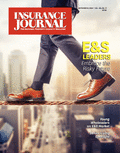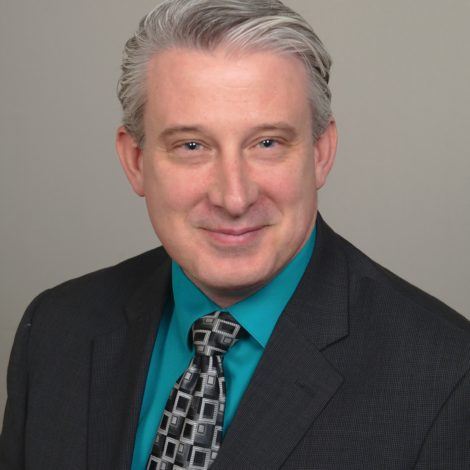You know that Hurricane Michael came through the Florida panhandle as a powerful Category 4 storm. In fact, when it made landfall, it was just 2 mph from being considered a Category 5 storm. It is the most powerful hurricane to make landfall in the panhandle on record. This week, I took a drive west to see who I could talk to about the storm; agents, companies, customers, anyone. I didn’t go into the hardest hit areas because I felt like one more car was not what that area needed.
As I drove west on Interstate 10, everything seemed normal. Is was busy, but the traffic wasn’t bad. I live about 100 miles east of Tallahassee. The first clue that life wasn’t as normal as it appeared was the convoy of power company trucks that I passed on my way out. There are times when that wouldn’t be a big deal because they would be headed somewhere else to help people a long way away. These were headed in the same direction as I was.
The changes started just east of Tallahassee. I started to see some trees down along the highway. A tree here and a tree there. At first there weren’t very much. When I turned off the interstate, I saw the next sign that things weren’t as normal as they could be. Once you get off the larger city highways, you start to see trees that fell and were cut off near the top and bottom so that cars could travel the small two-lane road.
Another sign that things weren’t all that normal was the insurance companies with their catastrophe response vehicles in large parking lots. Big national carriers like Allstate and USAA were out and so were the regional and Florida domestic writers, like Universal and Citizens. Even then, it still seemed like the storm impact was a long way away. Power was back on and people were rushing about, most of them on state capital business, I’m sure.
Then I got back on the interstate and headed farther west. It wasn’t until I left Leon county that it really sunk in where I was going and what I was driving into. For miles along the interstate, there were stretches where it seemed like there was a tree down every other foot. It was almost like a logging company felled all the trees along the interstate. It looked like someone laid the trees down and cut the tops off so that cars wouldn’t be impeded on their way to Alabama or Jacksonville.
It was getting off the interstate again when things really changed. Traffic was lighter than it should have been. At first, the traffic signals worked, but along that same road, I could look at the street lights that were turned so that if they had power, they would have shined at me, instead of on the roadway. That was OK because they didn’t have power. Their power lines were laying in the road next to them.
As I drove around, I ended up at a church where there was a bit of activity. I talked with the pastor. The church building had lost some shingles, but except for the power being out, was largely untouched. As we talked, he told me that they wouldn’t file a claim figuring that the loss would be deemed to be less than their hurricane deductible. They feared that after the company didn’t pay for their roof, they would end up raising their rates because of the claim. I didn’t bother trying to talk him into filing a claim. His eyes told me he had bigger issues.
This church was taking care of people whose homes were gone. Several families were living in rooms that two weeks before had been used for Sunday school. Later that day, over 40 people were likely to come by because this was the only place nearby that they could get a hot meal.
The pastor told me about a phone call he received the day before from the city. The person from the city found out that they had gas cookers and that they were working to feed some people. The city official asked them if they could feed some 60 linemen, who were working to restore the power in the area. The city provided the food and the church provided the rest. They took care of some people who traveled into their area to help them get back on their feet.
You see, normally I deal with insurance policies. I read the policy and even if it does always seem so, its clean. There’s coverage or there isn’t. You can find the exclusion, or you can find coverage. When there’s a hurricane, there’s the hurricane deductible. Yes, it might be a percentage of the building’s replacement cost, but that’s just the way the policy reads. It’s not personal. It’s because there happens to be a high risk of loss. We live in Florida after all. We have the longest coastline in the country. In a warm and dry house, I can write that it makes insurance sense that we have hurricane deductibles.
When I look people in the eyes after the storm, it’s a little harder to like hurricane deductibles. When I watch the video of storm surge up to the roofs of peoples’ homes, I have a hard time knowing that if they don’t have a mortgage, they likely don’t have coverage for flood, and storm surge is flood. They’re not going to have any coverage for that. When I see the giant tree that is still resting on top of the car that it fell on, it’s hard to think that it’s possible that the owner of that car may not have other than collision coverage on that car. I know that people make choices and have to live with them, but I also know that more often than not, they make these choices with incomplete information or worse, bad advice.
A drive into the area where a major hurricane impacted people was a stark reminder for me that this is a people business. Our customers aren’t insureds; they’re families; they’re small business owners. They’re people who woke up a week ago, fearing what the hurricane might do. They didn’t sleep that night because the storm had either just passed or was passing over them. They haven’t slept much since then because everything that they owned had been blown away or carried into the Gulf of Mexico. Most of them could at least account for their loved ones.
As I’m writing, there are 30 deaths attributed to Hurricane Michael. There are several people who are still missing, too. Those families haven’t slept, either. Meanwhile, I must look around and feel more than a little grateful for where my life is today.
Topics Catastrophe Florida Hurricane
Was this article valuable?
Here are more articles you may enjoy.



 Former UPS Driver Wins $238 Million Verdict in Suit Over Firing
Former UPS Driver Wins $238 Million Verdict in Suit Over Firing  US Property Insurance Rates Fall for First Time Since 2017
US Property Insurance Rates Fall for First Time Since 2017  Industry Critiques Trump’s Auto Insurance Rate Data, Promise to Cut Premiums
Industry Critiques Trump’s Auto Insurance Rate Data, Promise to Cut Premiums  Personal Lines Turnaround Fuels US P/C Industry Underwriting Gain
Personal Lines Turnaround Fuels US P/C Industry Underwriting Gain 


